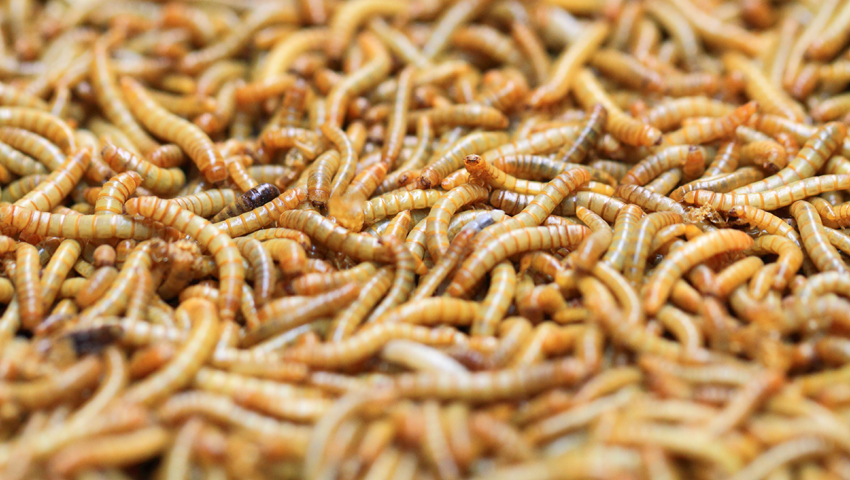Farmed insect protein, writes Emma Bryce in the Anthropocene Magazine, such as mealworms, crickets, and black soldier flies could offer a solution to the growing challenge of how to sustainably feed livestock. Insects are fast-growing and resource-efficient; they rapidly produce tons of protein, without the costly inputs required to produce grain or grass for feed.
Insects also generate large amounts of waste – shedding tons of crispy exoskeletons called ‘exuviae’, and excreting a potent mix of faeces and undigested food known as ‘frass’.
Now a group of researchers have written an article arguing that we’re missing a key trick as this industry of insect livestock grows. They say that we should be cycling this mountain of freely-available waste material back into the soil to grow our crops. By boosting soil health and increasing nutrient levels, mixing insect waste into farmland soil could reduce the use of chemical fertilizers and pesticides.
Writing in Trends in Plant Science, the researchers surveyed available evidence to understand how insect waste interacts with plants and soil. Insect frass is nitrogen-rich, so it can provide a direct source of nutrients to plants, resulting in a short-term pulse of plant-accessible nutrients.
Incorporating this waste into the soil could also nourish plants over the longer term through a series of complex interactions with micro-organisms. Adding insect by-products to farmland could boost the soil’s organic content, fuelling the growth of beneficial plant bacteria.
There’s also preliminary evidence to suggest that when these nutrient-funnelling bacteria are supplied with a steady stream of insect waste, they can make plants more productive by helping them produce larger, more colourful flowers for increased pollination, which boosts yields.
Insect exuviae also contain a rich store of chitin, a polymer that’s known to boost soil health and to trigger plants’ inbuilt defences against disease. Plants have trouble processing this polymer in its raw form. But the increase of insect organic material in the soil supports a range of bacteria species that will conveniently break down chitin and unlock its ingredients for crops, underscoring the simultaneous advantages that could come from fortifying agricultural soil with insect waste.
The researchers caution that until we have more direct research, many unanswered questions remain, such as how much insect exuviae and frass is required to nourish those microorganisms and to sustain them at the levels needed to support crops.
The use of insect waste could move us towards more circular systems in agriculture. Insects convert nutrients into protein very efficiently, and they’re happy to eat agricultural and food waste. Insect farms could be supplied with waste, transform it into protein for livestock, and then their own waste could be cycled back onto the fields.
With insect farming increasing these waste streams will grow – and with them the chance to increase the delivery of closed-loop farm systems.
